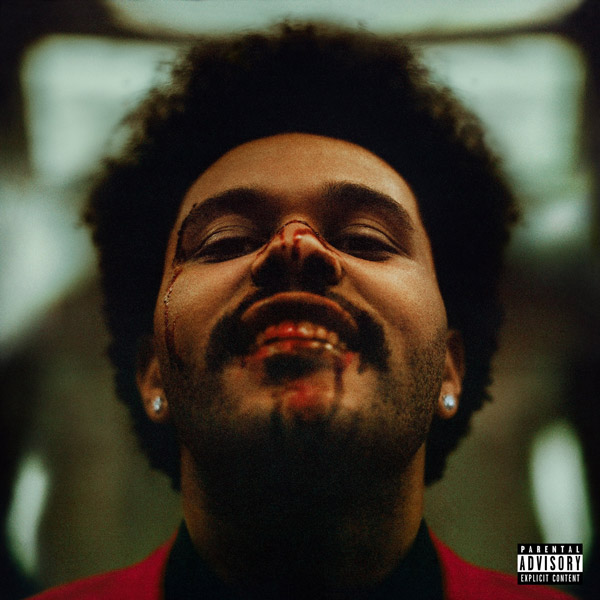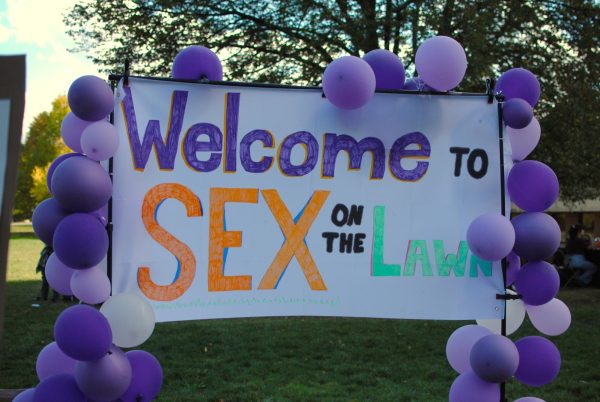Why “After Hours” is The Weeknd’s best studio album to date
Toronto-bred superstar Abel Tesfaye is no stranger to making hits, but “After Hours” is a refreshing injection to the artist’s discography.

(“After Hours” Album Cover / Republic Records)
Since the release of his 2018 EP “My Dear Melancholy,” The Weeknd has been somewhat absent from the music world and the public eye. Aside from a feature on Travis Scott’s “WAKE UP” and a cameo in Adam Sandler’s oscar-nominated “Uncut Gems,” we haven’t really seen or heard much from the R&B phenom from the north.
In the last decade, The Weeknd evolved from an underground sensation with the release of his 2011 “Trilogy” series which included the “House of Balloons,” “Thursday” and “Echoes of Silence” mixtapes. The Weeknd made his rich vocals shine as he captures the essence of Toronto through cold, ethereal production with heartbreak and drug-infused lyrics as he does on “The Morning.”
Since the “Trilogy” mixtapes, The Weeknd has been on an unprecedented run, and enjoyed many chart-topping projects like his 2015 project “Beauty Behind the Madness” or the 2016 rebrand of “Starboy.” Both albums saw mainstream success and topped charts all over the world, with plenty of hits like the Kids Choice Award-winning “Can’t Feel My Face.”
Yet, his latest release “After Hours” is undoubtedly The Weeknd’s most polished, focused and sonically-revitalizing album to date. With 80s-infused synth riffs, bouncy basslines and vivacious vocal performances, The Weeknd delivers a project that is refreshing as the pop sensation brings his artistic vision into focus.
Method acting
Just ask Danny Brown, getting into character, and taking it seriously, works. The Weeknd, as he did for “Starboy” reinvents his image and steps into a role for “After Hours.” Yet, even with a similar focus on “Starboy,” The Weeknd brings us his most satisfying focus yet on “After Hours,” and much of the credit goes to the self-loathing villain role he plays throughout the project.
It’s called method acting https://t.co/7u2YrtK3sM
— Danny Brown (@xdannyxbrownx) September 17, 2019
I mean, just look at the cover art. His wicked, scheming smile. The blood coating his teeth and dripping from his chin. The lights projecting from the album’s background. The Weeknd sets us up for an album driven by a villainous, yet self-aware character bound to the life of superstardom through drugs, sex, money and music.
It is not an unfamiliar character, but one that, coupled with great lyrics and outstanding production, shines as the Weeknd finally brings his vision into fruition with an album that is addictive as it is heartbreaking.
On “Hardest to Love,” the Weeknd places us into the scene of a failing relationship, one that he knows the impact of his toxic habits but can’t seem to grasp why his partner chooses to stay with him. He sings, “I don’t feel it anymore / This house I bought is not a home / Together we are so alone.” Self-aware, heartrending lyrics like this are riddled throughout the album, providing substance and stature to the world the Weeknd creates around his character.
Another excellent example of The Weeknd’s character coming to the front is on the track “Escape from LA,” where he knowingly dismisses the needs and concerns over the infidelity towards his partner, blaming his behavior on the chaotic stardom that comes with living in Los Angeles.
Abel’s voice takes center stage
As can be said for almost all of his albums, The Weeknd’s vocal performance never waivers on “After Hours.” He delivers outrageous vocal riffs with such ease throughout the entire project, and this is when The Weeknd is at his best.
The Weeknd has one of the best vocal ranges in the entire music industry, and he displays his mastery of falsetto, the method of singing higher notes outside the singer’s normal range. “Scared to Live,” “Save Your Tears” and the album-titled track “After Hours” are exceptional examples of The Weeknd’s vocal talent.
Before jumping into a new wave groove, The Weeknd opens the track “After Hours” with beautifully high notes to add some high-end substance to an atmospheric, moody instrumental. His vocals are often a brilliant contrast to the full, booming basslines sprinkled throughout the project.
Yet, one of the project’s few shortcomings relates to the use of The Weeknd’s vocals as well. Despite displaying incredible skill and flexibility with his voice, The Weeknd sometimes “overproduces” his voice on “After Hours.” On tracks like “Alone Again” and “Too Late,” The Weeknd almost drowns out his own voice with effects and filters.
By design, these effects are supposed to add some substance to the song to compliment the instrumental. Yet, for an artist who is as gifted as The Weeknd, his voice sounds much better unprocessed and unfiltered. The artistic vision remains intact, but a few of these tracks suffer from too much overproduction. However, The Weeknd’s voice remains at center stage despite this minor flaw.
Genre-bending? Try genre-fusing
While The Weeknd is no stranger to infusing pop and R&B, he does so with such deftness and complexity on “After Hours.” For a few of his previous projects, the marriage of R&B and pop never seemed like much of a reality. “Starboy” and “My Dear Melancholy,” are excellent examples. On “My Dear Melancholy,” the intro track “Call Out My Name” exhibits The Weeknd in his R&B environment. The slow, pitter-patter drums coupled with dark keys make for an excellent tune, but when compared to tracks like “Wasted Times,” the two are not cohesive on a project together.
However, it seems that The Weeknd has finally found the perfect blend on “After Hours.” After years of chart-topping success, The Weeknd pieces together 14 tracks that feel natural and cohesive as a unit. Rather than bending genres, The Weeknd embraces new wave, dream pop and R&B to paint a perfect image of the artist’s vision.
Perhaps the best example on this project is one of the album’s lead singles, “Blinding Lights.” I have to admit, “Blinding Lights” is perhaps one of the best Weeknd singles in his discography. The bright, shining synths set the mood perfectly to create an addictive eighties-esque pop anthem.
The preceding track, “Faith,” set “Blinding Lights” up brilliantly. As it is slightly darker sonically, The Weeknd effortlessly transitions from a new wave bop from “Faith” to a dream-pop experience with “Blinding Lights.” This kind of cohesiveness is apparent throughout the album, and The Weeknd creates an experience that puts the listener in the center of his world.
THE VERDICT: 8/10
While it may not reach the highs of the mixtapes in his “Trilogy” series, “After Hours” is certainly The Weeknd’s best studio album to date. He finds the perfect balance in his vision, creating a villain in the process that listeners can audibly experience a life plagued by heartbreak, drugs and stardom. “After Hours” serves as a benchmark for The Weeknd, and hopefully he continues to build on his success after the project inevitably dominates the charts.
“After Hours” is available on all streaming services.
Email Trevor at [email protected] or follow him on Twitter @TrevorWilsonOG.






